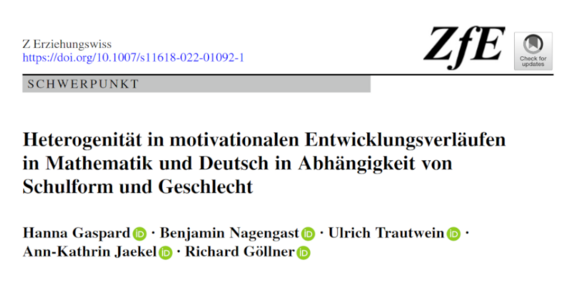New journal article published in Zeitschrift für Erziehungswissenschaft
- Publications
- News

Motivation research has consistently shown a decline in motivation with increasing age as well as gender differences in motivation for different school subjects. Less research has focused so far on how such differences are associated with the type of school. In this study, heterogeneity in ability self-concept and subjective task values in mathematics and German depending on grade level, gender, and type of school was therefore investigated. To this end, several cohorts of students (N = 8080) in grades 5 to 10 from academic track schools (“Gymnasium”), medium track schools (“Realschule”), and comprehensive schools (“Gemeinschaftsschule”) in Baden-Württemberg were surveyed across two school years. Students in higher grade levels reported higher levels of ability self-concepts and subjective task values. Furthermore, gender differences favoring boys in mathematics and females in German were found. When controlling for achievement and family background, students in less selective school types showed higher levels of ability self-concepts and subjective task values compared with students in the academic track. Furthermore, grade level and gender differences varied between school types, which emphasizes their relevance as learning and developmental environments with respect to students’ motivation.





